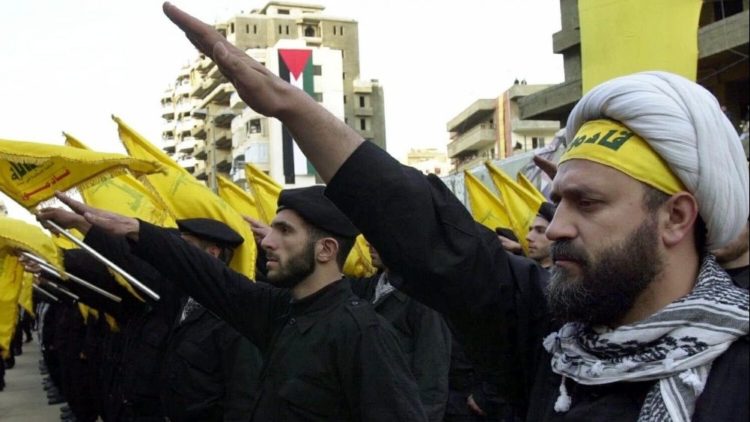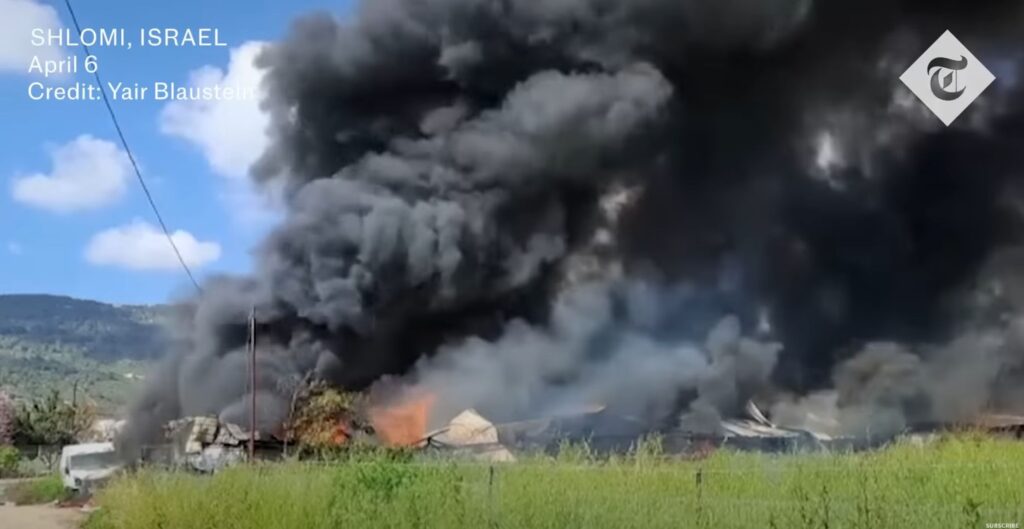When Iraq became greatly destabilized, this gave Iran and Hezbollah new life as the IRGC used a major land route to consistently supply their proxy. Through Iran, Iraq, Syria, and Lebanon, Hezbollah now has a constant flow of arms and illicit trade, such as captagon to finance their billion-dollar operations.
The militia also carries a wide variety of drones, which have frequently flown over Israeli airspace. These drones can also be armed to strike high-value targets. Hezbollah also has anti-ship missiles, which could potentially target US naval and civilian ships in the Eastern Mediterranean Sea.
The majority of Hezbollah’s rocket arsenal is portable and unguided surface-to-surface missiles, which could cause indiscriminate civilian casualties. The greatest threats are the Iranian missiles that have been transferred to them through the four state corridors that are guided and could reach the entirety of Israel and a wide variety of nations across the region.
How Israel is Preparing
Israel has learned lessons from indirect fire and counter-insurgency and has invested in a wide range of missile defense systems. The Iron Dome, David’s Sling, and the potential deployment of laser-intercepting missile defense systems are now in the repertoire of IDF missile defense capabilities.
The Iron Dome itself has become successful in dealing with drones and indirect fire. Several nations, such as Romania, India, Cyprus, South Korea, and the United States, have made deals to purchase a battery to counter growing threats towards their borders. Tel Aviv has also held war games to extensively predict what a new war against the Iranian militia would look like.
Heightening Tensions
Southern Lebanon has been under the rule of Hezbollah, and the Lebanese government all but in the name ‘governs’ it. Along with the Iranian-backed militia are several Palestinian militant groups that are also backed and financed by Tehran. The majority of rocket fire stemming from the South comes from these militant groups in the refugee camps that the Lebanese army does not have control over.
The United Nations peacekeeping mission has done little to mitigate tensions on the border. An Irish peacekeeper was killed in an ambush in Lebanon several months ago, and a bomber broke through the border and was neutralized by the IDF last month. The events from the border crossing led to a major undisclosed security meeting between Netanyahu and his defense ministers.
On April 6th, several rockets were fired from one of these camps. Hamas’ chief, Ismael Haniyeh was in Lebanon during these strikes, and he has made several meetings with Hezbollah and IRGC commanders over the past several years.
To mitigate Hezbollah’s growing arsenal, Israel has struck the group’s logistical and command centers in Syria on several dozen occasions. Correspondingly, the group has fired rockets from Syria, using the lawless state as a neutral ground for a tit-for-tat policy.
What a New War Could Look Like
If another war were to happen, the Israeli Air Forces (IAF) would immediately move to strike all known rocket storage locations. This would be incredibly difficult as Hezbollah has used the human shield method in Lebanon to store rockets in homes and near towns with no military presence. This was confirmed when local Druze detained a Hezbollah rocket team that fired several payloads in their village during the 2021 clashes.
Prominent cities in Israel could be under sustained rocket fire that could reach upwards of 1000 rockets per day until a ceasefire is implemented. Tel Aviv has stated Beirut bears responsibility for Hezbollah’s actions and wouldn’t hesitate to strike targets near densely populated areas if it means protecting their own civilians to neutralize targets.
A new war would see a renewed Israeli invasion as aerial bombardment alone cannot dislodge the militia. With Hezbollah spending nearly two decades preparing for a potential invasion, the IDF could face an even more hardline defense that could result in substantial military casualties on both sides.
The Nightmare Scenario if it Escalates Beyond UN Control
In the event the international community wasn’t able to stop a war between both actors, events could spiral out of control. With Hezbollah’s sophisticated arsenal, they could target Israel’s nuclear power plants, airports, banks, and major governmental centers in an attempt to cripple the nation economically. Likewise, Israel would retaliate in kind by carpet bombing if things were to escalate, leading to tens of thousands of civilian casualties on both sides.
With Hezbollah ever-embedded in the Lebanese security apparatus, there would be a carpet bombing of major installations in the country that are affiliated with the militia. This could include the vast majority of the Bekaa Valley, the South, and Beirut international airport, which is a major stream of weapons smuggling.
Syria would also become a major battleground as the presence of a large contingent of Hezbollah forces and IRGC commanders and militias would be acceptable to target. This would cause an even greater humanitarian crisis that the country is facing and possibly renew their own civil war to tensions not seen since fighting died down in 2018.
Nonetheless, the risks of cataclysmic outweigh the prospects of victory that neither side could ever truly receive without paying a high price. Both the IDF and Hezbollah have stepped up capabilities to where a full-blown war would cause considerable damage between Lebanon and Israel that would affect millions between both nations for decades if not mitigated.











COMMENTS